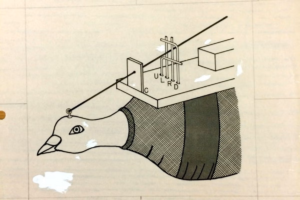By Jnanendra Das
 Does it ever happen to you that you observe when a coin is tossed in the air, it always lands on the same side it started? Well, you’re not alone in thinking that. It’s not just a trick of your mind—there’s actual research to back it up. A team of 50 researchers conducted a staggering 350,757 coin tosses, revealing this probability. This fascinating and humorous experiment won them a Nobel Prize, but not the real one. With nine other teams, they won the 2024 “Ig Nobel Prize”. Several Indians including former Prime Minister (PM) Atal Bihari Vajpayee are also on this list.
Does it ever happen to you that you observe when a coin is tossed in the air, it always lands on the same side it started? Well, you’re not alone in thinking that. It’s not just a trick of your mind—there’s actual research to back it up. A team of 50 researchers conducted a staggering 350,757 coin tosses, revealing this probability. This fascinating and humorous experiment won them a Nobel Prize, but not the real one. With nine other teams, they won the 2024 “Ig Nobel Prize”. Several Indians including former Prime Minister (PM) Atal Bihari Vajpayee are also on this list.
The Ig Nobel Prize: Laugh First, Think Later
 The Ig Nobel Prize, a playful parody of the prestigious Nobel Prize, has been awarded annually since 1991. The ceremony is held each year in mid-September when the recipients of the genuine Nobel Prizes are announced. As its tagline suggests, it recognises bizarre yet intriguing research that, “first makes people laugh, and then makes them think.”
The Ig Nobel Prize, a playful parody of the prestigious Nobel Prize, has been awarded annually since 1991. The ceremony is held each year in mid-September when the recipients of the genuine Nobel Prizes are announced. As its tagline suggests, it recognises bizarre yet intriguing research that, “first makes people laugh, and then makes them think.”
Founded by Marc Abrahams, editor of Annals of Improbable Research, the Ig Nobel awards are handed out by real Nobel laureates in a light-hearted ceremony held at the Massachusetts Institute of Technology (MIT). Each year, ten prizes are given across various categories such as physics, chemistry, medicine, and even offbeat areas like Probability and Public Health.
 The Ig Nobel winners receive a nominal cash prize of 100 trillion Zimbabwean dollars—an almost worthless currency, but a valuable collector’s item. Despite the humour, the Ig Nobel prizes are grounded in genuine research and occasionally draw attention to important or overlooked topics.
The Ig Nobel winners receive a nominal cash prize of 100 trillion Zimbabwean dollars—an almost worthless currency, but a valuable collector’s item. Despite the humour, the Ig Nobel prizes are grounded in genuine research and occasionally draw attention to important or overlooked topics.
From Levitating Frogs to the 5-Second Rule
The Ig Nobel Prize has become famous for recognising seemingly absurd research that often uncovers fascinating truths. A few iconic examples include the insights into why, when you bend dry spaghetti, it often breaks into more than two pieces (2006, Physics), or for investigating the scientific validity of the “five-second rule” about whether it’s safe to eat food that’s been dropped on the floor (2004, Public Health). In 2017, Marc-Antoine Fardin, won the award in Physics for using fluid dynamics to probe the question “Can a Cat Be Both a Solid and a Liquid?”
 The Ig Nobel may seem all fun and games, but they often serve a deeper purpose. Many of the prize-winning studies offer new perspectives on real-world problems, encouraging the scientific community to approach challenges with creativity and humour.
The Ig Nobel may seem all fun and games, but they often serve a deeper purpose. Many of the prize-winning studies offer new perspectives on real-world problems, encouraging the scientific community to approach challenges with creativity and humour.
For instance, Sir Andre Geim, who won an Ig Nobel in 2000 for “levitating a frog” using magnets, also won the Nobel Prize in Physics in 2010 for his groundbreaking work on graphene. To date, he is the only person to have received both a Nobel and an Ig Nobel Prize.
2024’s Laughable—and Thought-Provoking—Achievements
 This year’s awards held at MIT after four years of being held via webcast continued the tradition of highlighting unexpected brilliance. Nobel laureate Abhijit Banerjee, along with a gaggle of genuine, genuinely bemused Nobel laureates physically presented the Ig Nobel Prizes to the new Ig Nobel winners.
This year’s awards held at MIT after four years of being held via webcast continued the tradition of highlighting unexpected brilliance. Nobel laureate Abhijit Banerjee, along with a gaggle of genuine, genuinely bemused Nobel laureates physically presented the Ig Nobel Prizes to the new Ig Nobel winners.
Apart from the coin toss experiment, there was another notable achievement: the Peace Prize was awarded to B.F. Skinner, posthumously, for his pigeon-guided missile system. His experiment shows the feasibility of housing live pigeons inside missiles to guide the flight paths. Yes, pigeons were trained to peck at a target, helping to guide missiles to their destinations. While the project never saw military use, it underscored the innovative—and slightly eccentric—thinking that the Ig Nobel celebrates.
Indian Ig Nobel Laureates
Indians and individuals of Indian origin have also made their mark in the quirky world of Ig Nobel Prizes. Among them is former Indian Prime Minister Atal Bihari Vajpayee, who, along with Pakistan’s Prime Minister Nawaz Sharif, was awarded the Ig Nobel Peace Prize in 1998 for their “aggressively peaceful” nuclear tests. Despite the tense political climate, both leaders described their tests as “peaceful”.
In the same category, in 2003, Lal Bihari, of Uttar Pradesh won the prize for a triple accomplishment: First, for leading an active life even though he has been declared legally dead; Second, for waging a lively posthumous campaign for 19 long years against bureaucratic inertia and greedy relatives; and Third, for creating the Association of Dead People.
Lal Bihari even overcame the handicap of being dead and managed to obtain a passport from the Indian government so that he could travel to Harvard to accept his Prize. However, the U.S. government refused to allow him into the country. Filmmaker Satish Kaushik’s “Kaagaz” (2021) movie starring Pankaj Tripathi is based on his life.
In 2005, Indian-origin MIT graduate student, Gauri Nanda was awarded the Ig Nobel in Economics for inventing “Clocky,” an alarm clock that runs away and hides, forcing people to get out of bed to turn it off, thus theoretically adding many productive hours to the workday.
The Ig Nobel discoveries may not change the world, but they remind us that science doesn’t always have to be serious—it can be fun, strange, and surprising. So next time you toss a coin, remember that the side it started on just might win, and that research—even the wackiest kind—can inspire both laughter and learning.



